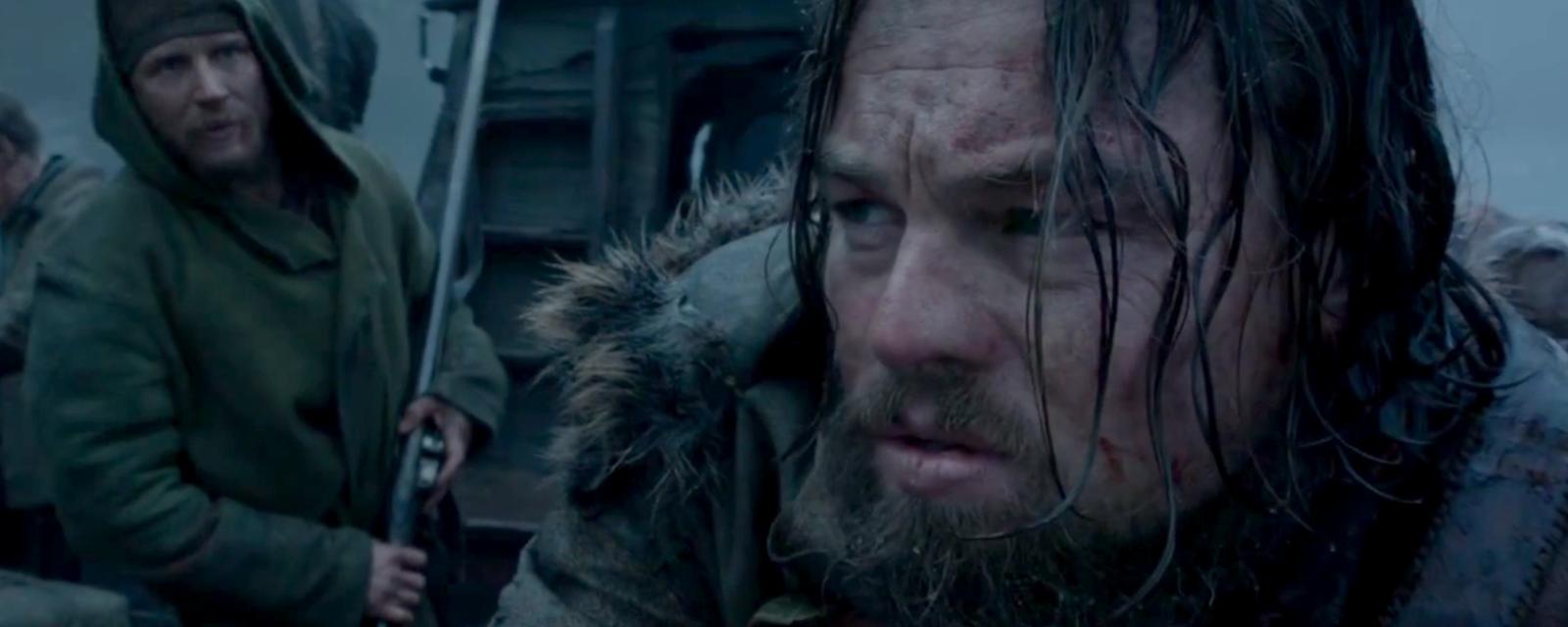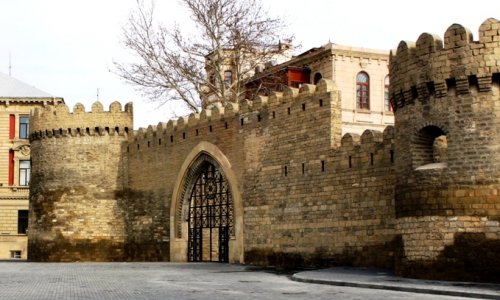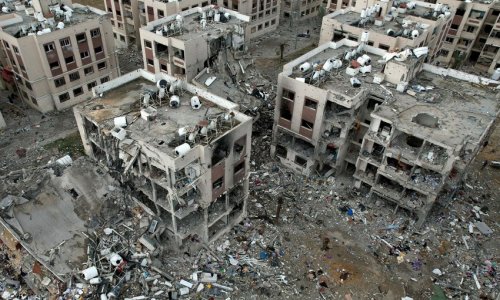Alejandro G Iñárritu’s last film, the Oscar-winning Birdman, was an energising, disorientating and frankly exhausting rollercoaster ride – and that was a comedy about a bunch of narcissistic actors. Imagine then what the same director can do with a brutal western about a frontiersman who is mauled by a bear, and then treks for miles through hellishly harsh terrain, dodging vengeful natives and vicious soldiers along the way. It’s hardly surprising The Revenant won three major prizes at the Golden Globes on Sunday. Based on the ordeals of a real 19th-Century fur-trapper, Hugh Glass, and adapted from a novel about him by Michael Punke, Iñárritu’s revenge thriller is so intense and immersive that it makes you wince, shudder and duck for cover. Towards the end, though, it might make you check your watch a few times too.
The opening minutes pack in more visceral shocks than most films do in their entirety. Glass (Leonardo DiCaprio) is guiding a hunting party through a remote forest when they are ambushed by Arikara warriors. The hunters make a desperate dash for their boat on the Missouri river, as arrows slice through the air around them, but most of them are killed in a heart-stopping, exquisitely choreographed sequence which should be on every future list of cinema’s greatest battle scenes. Glass then declares that the survivors should be safe if they abandon their boat, and hike back to their distant encampment. But the Arikara aren’t the only predators in the area. Alone in the misty woods, Glass points his rifle at two bear cubs, only to be clawed, bitten and generally mutilated by their furious and gigantic mother. It’s another astonishing set piece. Iñárritu is a master at depicting violent melees, whether a spat between an actor and a critic in Birdman or a fierce burst of dog-fighting in his 2000 debut, Amores Perros. But this latest seamless blend of live-action and CGI makes those earlier confrontations seem like playground scuffles.
Glass survives his grisly grizzly encounter, but only just. The expedition leader (Domhnall Gleeson) assumes that he will die from his deep wounds in a matter of hours, so he orders his men to continue their trek, leaving three of them behind to give Glass a decent burial when the time comes: the disgruntled Fitzgerald (Tom Hardy), the callow Bridger (Will Poulter), and Glass’s own son, Hawk (Forrest Goodluck). But Fitzgerald doesn’t fancy waiting around for another Arikara onslaught. He stabs Hawk, leaves Glass for dead and sets off through the wintry wilderness with the conflicted Bridger. Unfortunately for him, Glass stubbornly refuses to die, and he is soon stumbling after them.
Long march
With its gutsy scenes of backwoods endurance and its sublime mountain vistas, The Revenant is a cross between Werner Herzog’s gruelling travelogues (Aguirre Wrath of God, Rescue Dawn) and Terrence Malick’s spiritual reveries (The New World, The Tree of Life). This is no co-incidence. The film’s virtuoso cinematographer, Emmanuel Lubezki, has worked with Malick several times, as well as on such game-changing films as Children of Men, Gravity and Birdman, but he may well have excelled himself on The Revenant. If he doesn’t get another best cinematography Oscar to add to his collection, then Academy voters deserve a bear attack of their own.
Having just won a Golden Globe, DiCaprio is being tipped for Oscar glory, too, although that’s largely due to the reports of what he suffered during production. Shot outdoors in sub-zero Canada and Argentina, The Revenant compelled him to tumble down snowy hillsides, swim in frozen rivers, crawl along mossy forest floors and sink his teeth into raw bison liver.
It’s a committed, ferocious performance, and it would be no crime if it bagged DiCaprio an Oscar – but whether there is much range to his acting is another matter. The weakness of The Revenant is that it has the simplest of plots: one man walks, walks some more, and then does a bit more walking. And while a lot happens to him as he walks, nothing much actually changes. Glass doesn’t have to make any personal discoveries or difficult decisions on his travels. He doesn’t have to vary his strategy. He barely even says anything. He just keeps trudging on. Iñárritu tries to humanise him with artful flashbacks, hallucinations and memories of whispered slogans: "As long as you can still grab a breath, you fight.” But DiCaprio sticks to angry determination from start to finish. Instead of being an individual you can care about, Glass is essentially a woolly-bearded Terminator.
Despite the awe-inspiring scenery and the phenomenal action, the film’s one-note protagonist may leave you all-too conscious of the numbing 156-minute running time. And the various subplots don’t help, either: interludes with the Arikara tribespeople, the bedraggled hunting party and a rival French company are all surplus to requirements. The only really intriguing person in The Revenant is Hardy’s twitchy, self-justifying Fitzgerald, not least because he is the only one with a sense of humour. When he is talking about being scalped, or improvising threats and arguments to get his own way, you may well feel that a more complex, less predictable film would have focused on Fitzgerald and Bridger’s journey, rather than Glass’s. As it is, you’re bound to be impressed by what the actors went through, but you won’t be so bothered about the characters they play.
(BBC)
www.ann.az
Follow us !











